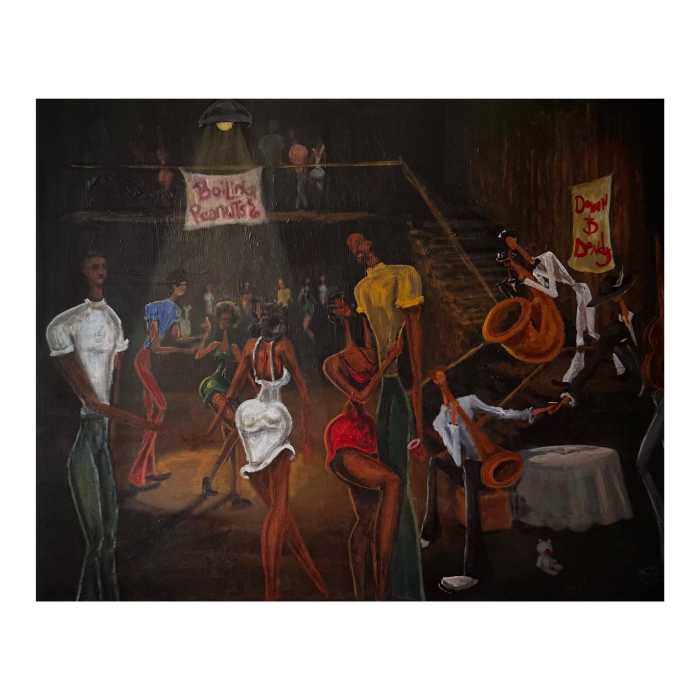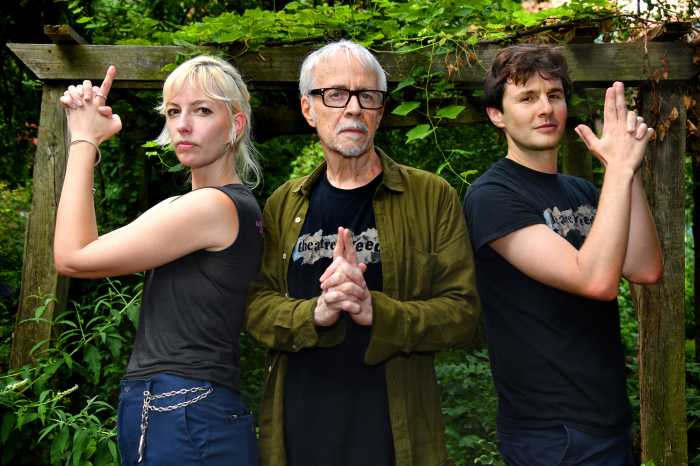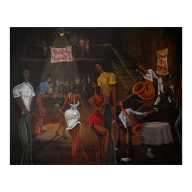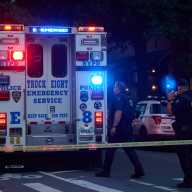By Albert Amateau
How do you become executive director of a venerable Chelsea institution that serves more than 11,000 people each year?
“I followed my heart,” was the short answer that Brian Saber gave earlier this month on his appointment as executive director of the Hudson Guild succeeding Janice McGuire, who retires next month after 19 years as leader of the guild.
Saber’s heart led him from Lawrence High School in Nassau County to Brandeis University where he earned a B.A. in economics in 1984 and where he became interested in the settlement house movement that was born at the end of the 19th century with pioneers like Jane Addams, Lillian Wald and John Lovejoy Elliott.
“I went to the University of Chicago for an M.B.A. because they had a nonprofit concentration,” he said. The Windy City was also where Jane Addams, a pioneer in settlement houses, founded Hull House to serve an immigrant neighborhood in 1889.
But the University of Chicago was not what Saber expected in the mid-1980s.
“It was a little too conservative for me,” he said, “but I learned a lot.” The town was also where he began working with Northwestern University Settlement House.
“It was in a neighborhood similar to Chelsea in many ways,” Saber recalled. “Largely working-class Polish and Irish, it had become Latino over the years and by the late 1980s and early ’90s it was starting to gentrify.”
He spent a busy 15 years in Chicago. In addition to his nine years at the settlement house he started a charter high school and spent a couple of years as executive director of a dance company, the Joseph Holms Dance Theater.
“The arts have always been an important interest for me,” he noted.
He also worked for a while as Brandeis University’s Midwest fundraising director.
“I came to love settlement houses and the kinds of communities they serve, so I couldn’t be in a better place than the Hudson Guild,” said Saber, explaining his move to New York and the guild in 2000. He became deputy executive director of the guild, working closely with McGuire on the $12 million renovation of the John Lovejoy Elliott Center at 441 W. 26th St.
“Turning over the reins as executive director to a colleague with whom I’ve worked closely for the past six years is especially satisfying,” McGuire said.
Arthur Aufses III, president of the guild’s board of trustees, said the board’s search committee had interviewed a strong slate of candidates.
“But in the end, it was clear that Brian was the best person to lead a new era for Hudson Guild,” Aufses said.
Saber, who lives in Maplewood, N.J., with his partner and their adopted 5-year-old son, takes over as guild executive director exactly a year after the completion of the Lovejoy center and a year after the guild surpassed the $12 million goal of its two-year capital campaign.
Saber said he intends to make sure the services that the guild provides remain strong. His eye is also on the future and these days he is deeply involved in preparing a May 31 symposium, “Chelsea 2025.”
“Chelsea is an ideal urban community, with a diverse mix of residential, commercial and manufacturing,” he said. “But how do you insure that a richly diverse neighborhood like Chelsea survives, grows and doesn’t become homogenized in an era of great change? That’s the issue we want to explore on May 31,” he said.
Darren Walker, director of Working Communities, The Rockefeller Foundation and a Chelsea resident, will moderate the 6 p.m. event in the Hudson Guild Theater. Brad Lander, director of the Pratt Center for Community Development, and Robert Yaro, Regional Plan Association president, will be on the panel.
“Lots of people will be trying to understand what kind of community we want to see 20 years from now and what we’re doing to make it happen,” Saber said.





































